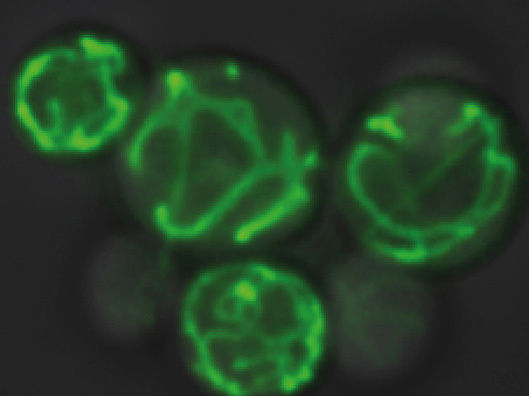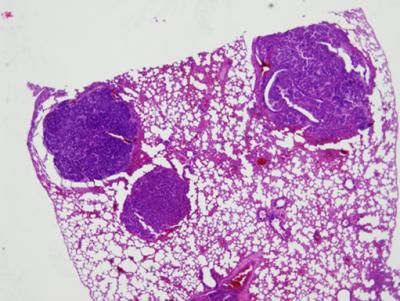Campus Vienna Biocenter: New role for a known signaling molecule
The Raf-1 protein plays a key role in determining how liver cells react to signals for the activation of a self-destruction program. A group at the Campus Vienna Biocenter has discovered this hitherto unknown function of the long-known signal molecule in murine cells. Future avenues for the development of therapies for a whole range of liver diseases have been opened up by the results of this project, funded by the Austrian Science Fund (FWF).
A protection mechanism known as apoptosis is activated when there are problems with the liver. The Fas receptors on the surface of the liver cells play a special part in activating this protection mechanism - they pick up the signal molecule known as FasL and then initiate the self-destruction of the cells.
A team led by Prof. Manuela Baccarini of the Max F. Perutz Laboratories, Department of Microbiology and Immunobiology of the University of Vienna, has now been able to demonstrate that the amount of Fas receptors on the cell membrane is regulated by the Raf-1 protein. The researchers have proved that cells unable to produce Raf-1 contain up to five times more Fas receptors.
The published results provide an explanation for the fact, discovered some time ago, that Raf-1 has an important function in embryonic development, as it suppresses the unwanted activation of the cell death program by the FasL signal molecule. It is now clear that this effect is brought about by regulation of the number of cell surface receptors which are responsible for activation.
When Raf-1 is lacking, however, the efficiency with which the individual receptors initiate the suicide program is also less than when Raf-1 is present at normal levels. This dual effect - more receptors but less effective - prompted Dr. Baccarini to propose a model for the effect of Raf-1. In this, Raf-1 acts on another protein, Rok-alpha, which has an impact on the binding of the receptors with components of the cytoskeleton. This binding is necessary both for the recycling of the receptors and for their complete functional efficiency. If the binding is disturbed, a large number of receptors that function less effectively collect on the cell surface.
The protection program activated by the Fas receptors can play a number of very different roles in connection with liver diseases. In the case of infections or rejections it destroys liver cells that could actually be saved by modern medicines. In such situations it is important to stop this program. The opposite applies to liver tumours. These bring about a weakening of the Fas-dependent self-protection and can thus continue to grow. Here, a strengthening of the protection program would be desirable so that the tumour cells could be killed off. The project¹s findings now point to a central role for Raf-1 in the regulation of the self-protection mechanism, and thereby offer a starting point of for future therapies for a wide range of liver diseases.
Original publication: Piazzolla et. al.; "Raf-1 sets the threshold of Fas sensitivity by modulating Rok-alpha signaling."; J Cell Biol, Vol. 171 (6).
Most read news
Organizations
Other news from the department science
These products might interest you

Whatman™ folded filter papers by Cytiva
Whatman folded filter papers
Convenient folded formats speed up your sample preparation

Systec H-Series by Systec
Safe, reproducible and validatable sterilization of liquids, solids and waste
Autoclaves with 65-1580 liters usable space, flexibly expandable for various applications

Get the life science industry in your inbox
By submitting this form you agree that LUMITOS AG will send you the newsletter(s) selected above by email. Your data will not be passed on to third parties. Your data will be stored and processed in accordance with our data protection regulations. LUMITOS may contact you by email for the purpose of advertising or market and opinion surveys. You can revoke your consent at any time without giving reasons to LUMITOS AG, Ernst-Augustin-Str. 2, 12489 Berlin, Germany or by e-mail at revoke@lumitos.com with effect for the future. In addition, each email contains a link to unsubscribe from the corresponding newsletter.
More news from our other portals
Last viewed contents

A giant called MIMAS in the cell power plants - Mega protein complex with surprising properties discovered in mitochondria























































